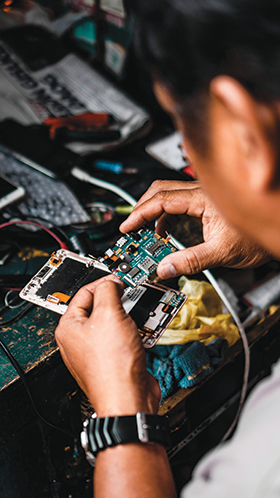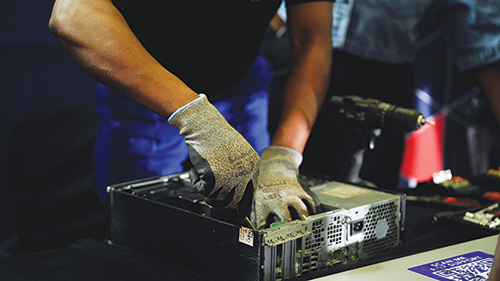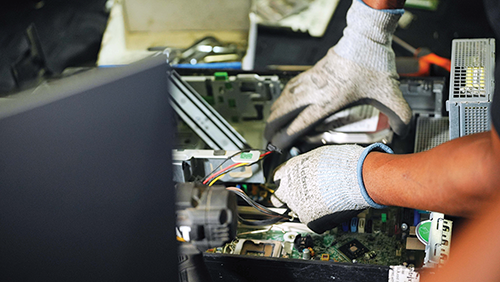

Every year, millions of electrical and electronic devices and appliances, including mobile phones and computers, are thrown away. These discarded devices are considered electronic waste (e-waste). This is now the fastest growing waste stream in the world, and can become a threat to both health and the environment if they are not disposed of and recycled properly.
Limpopo recently launched its E-Waste for Youth Employment in Limpopo Province project which they believe will change this narrative. The project is being implemented by the International Labour Organization (ILO) in conjunction with the Department of Forestry, Fisheries and the Environment (DFFE) and the Limpopo Department of Economic Development, Environment and Tourism (LEDET) with funding from the government of Japan.
According to the World Health Organisation, less than a quarter of e-waste produced globally in 2022 was known to be formally recycled. However, e-waste streams contain valuable and finite resources that can be reused if they are recycled appropriately. South Africa generates between 360 000 and 530 000 tons of e-waste every year, but only 7 to 12% is properly recycled. The rest often ends up in landfills or is informally handled, releasing harmful toxins like lead and mercury that contaminate soil, water and air and are harmful to both humans and animals.
The one-year E-Waste Project will address the twin challenges of high youth unemployment in the region and environmental degradation by promoting sustainable e-waste management and creating economic opportunities within the circular economy. It is designed to empower youth, women and persons with disabilities through technical training, business development support and market linkages in the e-waste recycling sector.

“The support of the government of Japan in the form of $1,5 million (nearly R26 million) towards the project signifies the proactive steps being taken to address several challenges facing Limpopo. This one-year initiative is not just about training and employment, it is about creating a paradigm shift,” said Januma Takuya, second secretary at the Japanese Embassy.
“The Limpopo province faces significant challenges in managing e-waste,” said Mafu Nkosi, LEDET chief director. “The improper disposal of electronic waste in landfills and open sites poses serious environmental and health risks, while the informal nature of the sector leaves waste pickers and entrepreneurs without adequate social protection, job security or fair wages. This project aims to strengthen policy frameworks, develop skills and support the establishment of youth-led e-waste enterprises, contributing to a cleaner environment, sustainable livelihoods and the broader objectives of South Africa’s National Development Plan 2030.”

His views were echoed by Alexio Musindo, ILO Pretoria director: “This partnership brings awareness for responsible e-waste management and is a call to action, with all of us working together to reach our goals. Together, we can build a cleaner, greener and more prosperous Limpopo.”
How individuals can make a difference:
• Don’t burn or dump electronics, they release toxins.
• Take old devices to certified e-waste collection points. E-waste collection points in South Africa are available at some major retailers as well as through specialised recycling companies. You can also use the ‘Weee are SA’ website to find specific locations, or contact your municipality.
• Repair, reuse or donate functional electronics.
• Keep e-waste separate from household waste.
For more information contact Neo Motlhala, Neotrax,

© Technews Publishing (Pty) Ltd | All Rights Reserved